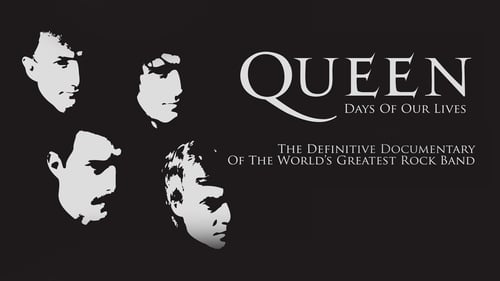
Camera Department Production Assistant
Richard Hammond celebrates 50 years of Bond's amazing history with cars revealing the entertaining behind-the-scenes stories of the most iconic cars.

Cinematography
In 1971, four college students got together to form a rock band. Since then, that certain band called Queen have released 26 albums and sold over 300 million records worldwide. The popularity of Freddie Mercury, Brian May, Roger Taylor and John Deacon is stronger than ever 40 years on. But it was no bed of roses. No pleasure cruise. Queen had their share of kicks in the face, but they came through and this is how they did it, set against the backdrop of brilliant music and stunning live performances from every corner of the globe. In this film, for the first time, it is the band that tells their story. Featuring brand new interviews with the band and unseen archive footage (including their recently unearthed, first ever TV performance), it is a compelling story told with intelligence, wit, plenty of humor and painful honesty.

Camera Operator
An intimate window into one of the great movements in film history that brought about an evolution in the art of cinema. The documentary portrays the movement with insight on the lives and works of Jean-Luc Godard, François Truffaut and other principal players in the New Wave.

Camera Operator
Reinhard Heydrich was considered the most dangerous man in Nazi Germany after Hitler himself. The plot to kill him masterminded in England and carried through to finality in Prague in 1942, is told in this gripping dramatised documentary special. Featuring meticulous reconstructions, coupled with authentic historical film, some of it never shown before the film powerfully presents a vivid account of the only successful assassination of a leading Nazi in World War II. It also chillingly recreates the terrible human cost of SS savagery against the Resistance and the total obliteration of the village of Lidice.

Cinematography
Robert Johnson was one of the most legendary and mysterious Delta Bluesmiths of all time. Little is known about his life, but his music has influenced many different artists, like Eric Clapton and Keith Richards. Now, John Hammond Jr., son of legendary record producer John H. Hammond, who also organized a concert for Robert Johnson right before he died, goes to the Deep South to learn more about this amazing man, trying to find information about Johnson's birth date, place and parents, his early musical development, performances and travels, romances, his mythic "pact with the devil," his untimely murder in his late twenties, the discovery of possible offspring, and the uncertainty over where Johnson is buried. Throughout, Johnson's music is both foreground and background, from recordings of Johnson and as performed on camera by Hammond, David Honeyboy Edwards, and Johnny Shines.

Director of Photography
Though very polite and British, this feature-length documentary about German filmmaker Wim Wenders offers the most penetrating insights and the best overall critique of his work that I have encountered anywhere. Paul Joyce, who directed it, has also made documentaries about Nicolas Roeg, David Cronenberg, Nagisa Oshima, and Dennis Hopper, and he knows the conventional format well enough to get the most out of it. There are good clips and interesting commentaries from the interviewed subjects, who include Wenders himself, cinematographer Robby Muller, filmmaker Sam Fuller, novelist Patricia Highsmith, musician Ry Cooder, actors Harry Dean Stanton, Peter Falk, and Hanns Zischler, and critic Kraft Wetzel, who is especially provocative. A must-see for Wenders fans, highly recommended for everyone else. –Jonathan Rosenbaum, 1989

Camera Operator
Sixteen lesbians, aged from 50 to 80, living in various parts of Britain and from different races, classes and backgrounds, talk about their lives and experiences of being lesbians.

Camera Operator
The story of Josephine Baker takes us on a fascinating tour of 20th-century race relations on both sides of the Atlantic, yet it leads to no conclusion, and black girls in search of a role-model tend to look elsewhere. Part of her appeal is her startlingly unique appearance. Simply nobody has ever looked or acted like her. She fits no black stereotype. Nor does she look like any recognizable strain of Afro-American. I'd always heard she was half-white, but it seems that her paternity is unknown, and her contradictory claims on the subject don't do much to enlighten us. (We are tempted to imagine quite an exotic mix.) Her origins in sharply-segregated St. Louis, where she is said to have witnessed a lynching, do not seem to have left her embittered. Perhaps she had too much to give. There is a special innocence about that smile, and when she performs her cross-eyed gag, we are lifted into a strange pixie-world, all its own.

Camera Operator
A BAFTA award nominated film tracing the development and usage of the documentary photograph through the work of three practitioners: Humphrey Spender, Derek Smith and Jimmy Forsyth.







